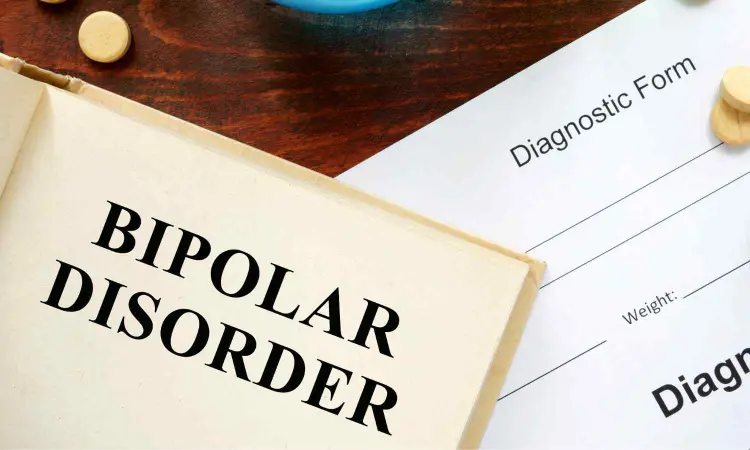- Home
- Medical news & Guidelines
- Anesthesiology
- Cardiology and CTVS
- Critical Care
- Dentistry
- Dermatology
- Diabetes and Endocrinology
- ENT
- Gastroenterology
- Medicine
- Nephrology
- Neurology
- Obstretics-Gynaecology
- Oncology
- Ophthalmology
- Orthopaedics
- Pediatrics-Neonatology
- Psychiatry
- Pulmonology
- Radiology
- Surgery
- Urology
- Laboratory Medicine
- Diet
- Nursing
- Paramedical
- Physiotherapy
- Health news
- Fact Check
- Bone Health Fact Check
- Brain Health Fact Check
- Cancer Related Fact Check
- Child Care Fact Check
- Dental and oral health fact check
- Diabetes and metabolic health fact check
- Diet and Nutrition Fact Check
- Eye and ENT Care Fact Check
- Fitness fact check
- Gut health fact check
- Heart health fact check
- Kidney health fact check
- Medical education fact check
- Men's health fact check
- Respiratory fact check
- Skin and hair care fact check
- Vaccine and Immunization fact check
- Women's health fact check
- AYUSH
- State News
- Andaman and Nicobar Islands
- Andhra Pradesh
- Arunachal Pradesh
- Assam
- Bihar
- Chandigarh
- Chattisgarh
- Dadra and Nagar Haveli
- Daman and Diu
- Delhi
- Goa
- Gujarat
- Haryana
- Himachal Pradesh
- Jammu & Kashmir
- Jharkhand
- Karnataka
- Kerala
- Ladakh
- Lakshadweep
- Madhya Pradesh
- Maharashtra
- Manipur
- Meghalaya
- Mizoram
- Nagaland
- Odisha
- Puducherry
- Punjab
- Rajasthan
- Sikkim
- Tamil Nadu
- Telangana
- Tripura
- Uttar Pradesh
- Uttrakhand
- West Bengal
- Medical Education
- Industry
Nearly 1 in 4 people with history of bipolar disorder achieve complete mental health, suggests study

New research conducted by the University of Toronto and published in the Journal of Affective Disorders Reports highlights that among Canadians previously diagnosed with bipolar disorder, 43% were free of all bipolar symptoms and approximately 1 in 4 (23.5%) had achieved complete mental health.
Despite these encouraging findings, those with a history of bipolar disorder were much less likely to be flourishing than their peers. Three-quarters of those without a history of bipolar disorders were in complete mental health.
“Even after accounting for various sociodemographic and health factors, individuals with a history of bipolar disorder still face significant challenges in achieving complete mental health compared to those without such a diagnosis,” says author Melanie J. Katz, a researcher at the University of Toronto’s Institute for Life Course and Aging. “Addressing the multifaceted needs of individuals living with bipolar disorder requires a comprehensive approach involving social support, effective coping strategies, and access to appropriate resources and services.”
The study, analyzing data from Statistics Canada’s Canadian Community Health Survey-Mental Health, compared 555 Canadians with a history of bipolar disorder to 20,530 respondents without such a history. To be considered in complete mental health, participants had to be free from any mental illness in the past year, including bipolar disorder, depression and substance use disorders or suicidal ideation. They also had to report almost daily social and psychological well-being and happiness or life satisfaction.
"The presence of a trusted confidant emerged as the most influential factor in achieving complete mental health,” says co-author Ishnaa Gulati, a recent Master of Public Health graduate from the University of Toronto’s Dalla Lana School of Public Health. “The adoption of spirituality as a coping mechanism and the absence of chronic pain were also identified as strong predictors for psychological flourishing,"
Interventions designed to foster supportive environments, strengthen social bonds, enhance coping mechanisms, and address physical health concerns, such as chronic pain, could empower individuals with bipolar disorder to navigate their path towards recovery and resilience more effectively, argue the authors.
The study also found a higher prevalence of complete mental health among married individuals, older respondents, those with higher income, and those with no lifetime history of drug or alcohol abuse.
“Most research on individuals with bipolar disorder has failed to focus on recovery and optimal functioning,” says Esme Fuller-Thomson, professor at the University of Toronto’s Factor-Inwentash Faculty of Social Work and director of the Institute for Life Course and Aging.“We hope that those with the disorder and their loved ones and health professionals will be heartened to learn that that one-quarter of he respondents who previously had bipolar disorder were now thriving and happy or satisfied with their life almost every day.”
"Our research highlights the complex challenges faced by individuals with bipolar disorder and the multifaceted nature of recovery," said Fuller-Thomson. "By identifying the key factors that contribute to complete mental health, our findings offer actionable insights for clinicians and mental health professionals. Tailored interventions can support this population in achieving not just symptom remission, but overall well-being."
Reference:
Melanie J. Katz, Ishnaa Gulati, Esme Fuller-Thomson, The continuum of recovery among Canadians with bipolar disorder: From remission to complete mental health, Journal of Affective Disorders Reports, 2024, https://doi.org/10.1016/j.jadr.2024.100808.
Dr Kamal Kant Kohli-MBBS, DTCD- a chest specialist with more than 30 years of practice and a flair for writing clinical articles, Dr Kamal Kant Kohli joined Medical Dialogues as a Chief Editor of Medical News. Besides writing articles, as an editor, he proofreads and verifies all the medical content published on Medical Dialogues including those coming from journals, studies,medical conferences,guidelines etc. Email: drkohli@medicaldialogues.in. Contact no. 011-43720751


